This year’s Hajj is the second year that it has been carried out on a very limited basis in the midst of Covid-19 pandemic. The government of Saudi Arabia enforces strict health protocols so that the implementat
ion of the pilgrimage can be safe and solemn.
Around 60 thousand pilgrims were allowed to take part in the 2021 Hajj, selected from around 558 thousand who registered online. The very limited registration was reserved for pilgrims who have been vaccinated and between 18-65 years of age and without a history of serious illness.
In addition, those who were allowed to register only from within Saudi, settlers and expatriates, apart from Saudi citizens there are at least pilgrims from 150 countries including Indonesian citizens as many as 327 pilgrims.
MINA News Agency in the MINA Talks program entitled “Notes for Hajj 144H” on Wednesday, July 28 invited the Indonesian Consul General in Jeddah Eko Hartanto to provide an explanation and share experiences related to the implementation of the 2021 Hajj in the midst of the Covid-19 pandemic.
Also Read: Strengthening Bridges of Friendship and Cooperation between Indonesia and African Countries
Other presenters are Imaam Yakshyallah Mansur (SQABM lecturer) and Ade Marfuddin (hajj observer from UIN Syarif Hidayatullah).
The following is an excerpt from an interview with the Indonesian Consul General in Jeddah:
MINA: Could you tell us how the beginning of this year’s Hajj?
At the preparatory stage, the implementation of hajj would be carried out domestically for citizens and expatriates as many as 60 thousand pilgrims, with several mandatory conditions including having been vaccinated with the Saudi-approved vaccine, Asrazeneca, Pfzier, J&J, Moderna. Pilgrims must be aged between 18-65 years and proven to have never performed Hajj in the last 5 years.
After that, Saudi Arabia set the date for the Hajj from 18-23 July. The registration for hajj is only done online provided by the Saudi government for one week from June 13-23.
Pilgrims who register will receive information on whether their registration is accepted or not through the application and if they are accepted the next stage is the payment of Hajj according to the selected Hajj package.
MINA : How is the technical guidance for the pilgrimage during the pandemic?
Hajj rituals are usually given by the Saudi government, but for this time, pilgrims are welcome to find information on their own. So, 25 of us from the Consulate General of the Republic of Indonesia did the rituals ourselves.
Also Read: Ambassador: Climate Change is the Main Cause of Floods in Pakistan
Pilgrims are divided into groups, each group consists of 20 people, guided by a team of leaders and facilitators, but the team coordinates with the pilgrims through online chat. So pilgrims do self service, they are required to be independent.
Almost all of the Hajj officers are Saudi citizens except for a few unskilled workers such as cleaning staff, drivers, consumption etc.
MINA: What are your notes on the implementation of Hajj this year?
First, this year’s Hajj in the midst of an epidemic made the Hajj very short, only about 6 days to complete. Of the 60 thousand pilgrims, 40 thousand of them came on July 18/8 Dzulhijah, a small part on 17 Dzulhijah.
Second, the function of the existence of a team leader is very minimal. This requires the congregation to be independent. This is of course very important. I don’t imagine if a pattern like this is applied in the future, considering that many of the congregation are old and tech-savvy about technology.
Also a criticism is the irregular transportation of pilgrims. Because the protocol was implemented, the pilgrims had to wait like in the old days and when the bus arrived, everyone rushed in. Pilgrims piled up but the bus had not yet arrived, it was quite chaotic.
The consumption, it’s a shame that all the food menus are full Arabic and it’s ready-to-eat food that has been made months ago. The Meccan government has rebuked the companies supplying the food. There were around 9,000 food packages confiscated because they were not fit for consumption.
The Saudi government is too focused on security but minus on the service side because so far Saudi has relied too much on the implementation of this pilgrimage to countries sending pilgrims, where they play an important role in the implementation of the pilgrimage.
Also Read: AMBASSADOR TALKS/Russian Ambassador: Attack on Ukraine Tough Choice to Make
MINA: How is the post-Hajj Umrah organized?
In accordance with the provisions of the Saudi government, Indonesian citizens are not allowed to enter directly into Saudi Arabia, must stop by a third country and must have been vaccinated according to the Saudi vaccine provisions, Indonesian citizens who use the Sinovac vaccine are required to increase the dose of vaccine if they want to enter Saudi Arabia. In addition to this Umrah will take longer time will also of course be more expensive. Indonesian Umrah pilgrims must be ready with the latest provisions set by Saudi Arabia.
So I conclude, Umrah at this time is quite heavy. It would be nice for us and the prospective Umrah pilgrims to wait until this difficult situation ends. (TW/RE1)
Miraj News Agency (MINA)
Also Read: Palestinian Administrative Detainees Boycott Occupation Courts for 40th Consecutive Day






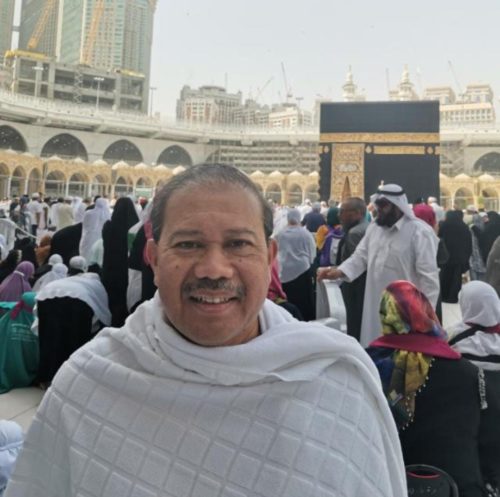



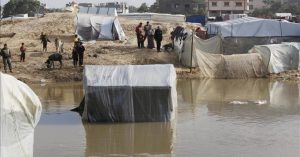
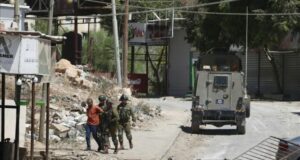




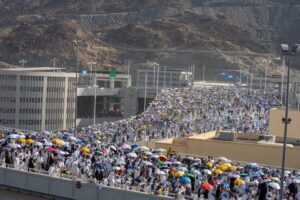

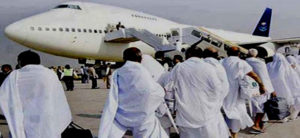

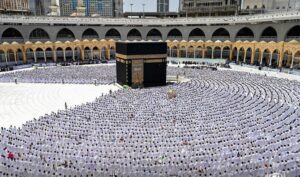











 Mina Indonesia
Mina Indonesia Mina Arabic
Mina Arabic